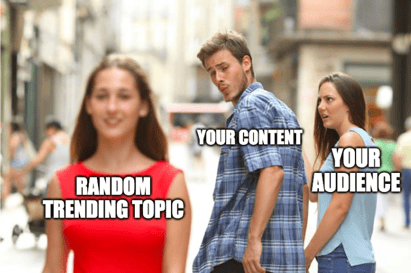Google Chrome To End Third-Party Cookies in 2024
Google is taking a big step forward this week in its mission to eliminate third-party cookies. Beginning Thursday, February 7th, Google will roll out...

Last updated: February 4, 2026 | Originally published: November 6, 2023
Editor's Note: This article has been significantly updated to reflect Google's March 2024 integration of the Helpful Content system into their core algorithm and subsequent developments through early 2026.
Quick Answer: Google's Helpful Content system is no longer a separate ranking update. In March 2024, Google integrated it into their core algorithm, making content quality and user focus central to all search rankings. Nearly two years later, the principles remain the same: create content for people, demonstrate expertise, and provide genuine value. Sites that prioritize SEO tactics over user needs continue to face ranking challenges.
Google has fundamentally changed how it evaluates content quality over the past four years.
What started as the Helpful Content Update in August 2022 became a cornerstone of Google's entire search algorithm by March 2024.
For marketing leaders evaluating agencies or building internal content strategies, understanding these principles is important to maintaining search visibility.
Google launched the Helpful Content Update in August 2022 to reward content "written by people, for people."
The September 2023 update refined the system and introduced site-wide penalties for hosting low-quality third-party content.
Then came the big change.
In March 2024, Google deprecated the Helpful Content Update as a standalone system and integrated it into their core ranking algorithm. This wasn't just a technical adjustment. It signaled that content quality is now foundational to how Google evaluates all websites.
The result? Google achieved a 45% reduction in low-quality, unoriginal content in search results.
Nearly two years later, this integration has proven permanent. Multiple core updates throughout 2024 and 2025 reinforced these quality signals rather than backing away from them.
Check your Google Analytics for organic traffic drops that coincide with major Google updates from the past two years:
Compare your traffic patterns in Google Analytics with ranking changes in Google Search Console.
Look for decreases in impressions, clicks, and average position for your top-performing pages.
If you see significant drops that align with these update dates, your content likely didn't meet Google's quality standards.
Your content should align with your brand's core expertise and purpose.
Don't chase trending topics outside your domain just to capture search traffic. Google's algorithm now penalizes sites that publish off-topic content to manipulate rankings.

This is particularly important if you host third-party content on subdomains. That content must fit your site's primary purpose or risk site-wide ranking penalties.
Focus on topics where you have genuine expertise and authority. Your content strategy should reflect what your business actually does.
Develop detailed audience personas that consider both demographics and expertise levels.
Write as if you're explaining concepts to a colleague or client. Read your content aloud—if it doesn't sound natural, rewrite it.
SEO principles still matter. Use keywords naturally. Optimize meta descriptions and headers. But never sacrifice readability for keyword density.
Here's the test: Would this content be valuable if search engines didn't exist?
Generic advice doesn't rank anymore.
Share specific insights from your direct experience. Include case studies, data from your own work, and lessons learned from real projects.
Google's E-E-A-T framework (Experience, Expertise, Authoritativeness, Trust) is central to content evaluation. The first "E"—Experience—was added in 2022 specifically to prioritize content from people who've actually done what they're writing about.
If you're summarizing what others have said without adding unique value, you're not creating helpful content.
Forget arbitrary word count targets.
The goal is to fully answer the searcher's question. Sometimes that takes 500 words. Sometimes it takes 3,000.
Longer content often ranks for more keyword variations and earns more backlinks. But padding content with redundant paragraphs to hit a word count hurts more than it helps.
Focus on comprehensive coverage of the topic, not the number of words.
Google's core algorithm continuously evaluates content quality.
Low-quality pages don't just hurt their own rankings—they can drag down your entire site.
Review your existing content quarterly. Identify weak performers and either:
Sites that improved content quality after being hit by the March 2024 update saw recovery in subsequent updates. But only if the improvements were substantial and sustained.
Google's stance on AI-generated content evolved significantly from 2023 to 2024.
The September 2023 update removed the phrase "written by people" from their guidelines. The focus shifted solely to content created "for people."
This means AI-generated content isn't automatically penalized. But it must meet the same quality standards as human-written content:
The problem? Most AI content falls short on expertise and originality.
Sites using AI at scale to produce thin content were heavily impacted by the March 2024 core update. Many gaming sites, recipe sites, and product review sites saw dramatic ranking drops—some losing all indexed pages.
By 2026, the lesson is clear: AI tools can support content creation, but human oversight and original expertise are non-negotiable. Edit for accuracy, add original insights, and ensure the final product serves your audience.
Google's helpful content principles are now permanent features of search ranking.
The days of gaming the algorithm with keyword-stuffed, shallow content are over. The algorithm has become sophisticated enough to identify and demote content created primarily for search engines.
For marketing leaders, this creates both challenges and opportunities:
The Challenge: Your entire content library must meet higher quality standards. Legacy content that once drove traffic may now be a liability.
The Opportunity: Smaller sites with genuine expertise can compete with larger publishers. If your content truly helps users make decisions, you have a better chance of ranking than sites that rely on domain authority alone.
Focus on creating content that demonstrates your agency's unique perspective. Answer the questions your target audience is actually asking. Provide frameworks, tools, and insights they can't get elsewhere.
That's what "helpful content" means in 2026.
No. Google integrated the Helpful Content system into their core algorithm in March 2024. It's no longer a separate update. Content quality is now evaluated as part of every core algorithm update, which typically happens every few months. Throughout 2024 and 2025, Google released multiple core updates that reinforced these quality signals.
AI-generated content isn't automatically penalized, but it must meet Google's quality standards. Most AI content fails because it lacks original insights and first-hand expertise. If you use AI, treat it as a drafting tool that requires substantial human editing and enhancement. The successful sites in 2026 use AI for efficiency while ensuring human experts add unique value.
Recovery depends on the extent of your content issues and how thoroughly you address them. Based on patterns from 2024 and 2025, sites that made significant improvements typically saw recovery within 2-6 months, usually aligning with the next major core update. However, minor tweaks won't cut it—Google requires substantial content improvements.
Not necessarily. First, evaluate whether the content can be updated and improved. If a post targets relevant keywords but the content is thin, rewrite it with more depth and expertise. Only delete content that's completely off-topic, outdated with no value, or so thin it can't be salvaged. Remember: low-quality content can hurt your entire site's rankings.
Creating content to chase search traffic rather than to serve their audience. Google's algorithm can now identify when content exists primarily to rank rather than to help users. The sites getting penalized are those publishing high volumes of shallow content across many topics without demonstrating real expertise in any of them. In 2026, quality and expertise matter more than volume.
Sign up for our monthly newsletter to receive updates.

Google is taking a big step forward this week in its mission to eliminate third-party cookies. Beginning Thursday, February 7th, Google will roll out...

Google My Business tends to fly under the radar a bit in terms of its importance in your digital strategy. However, whether you're a small brand or a...

What is Generative Engine Optimization? Generative engine optimization (GEO) is the practice of making your brand visible in AI-generated answers....